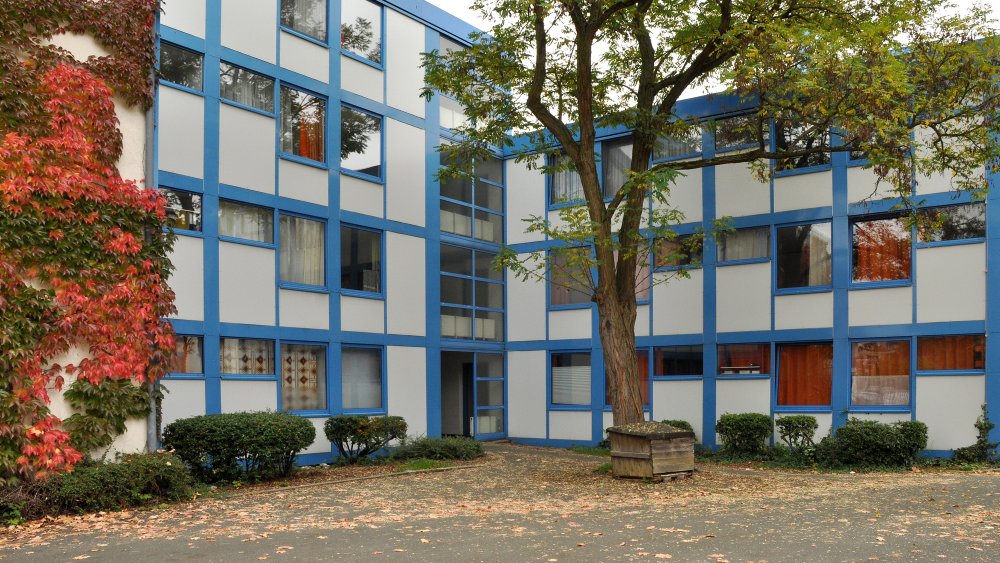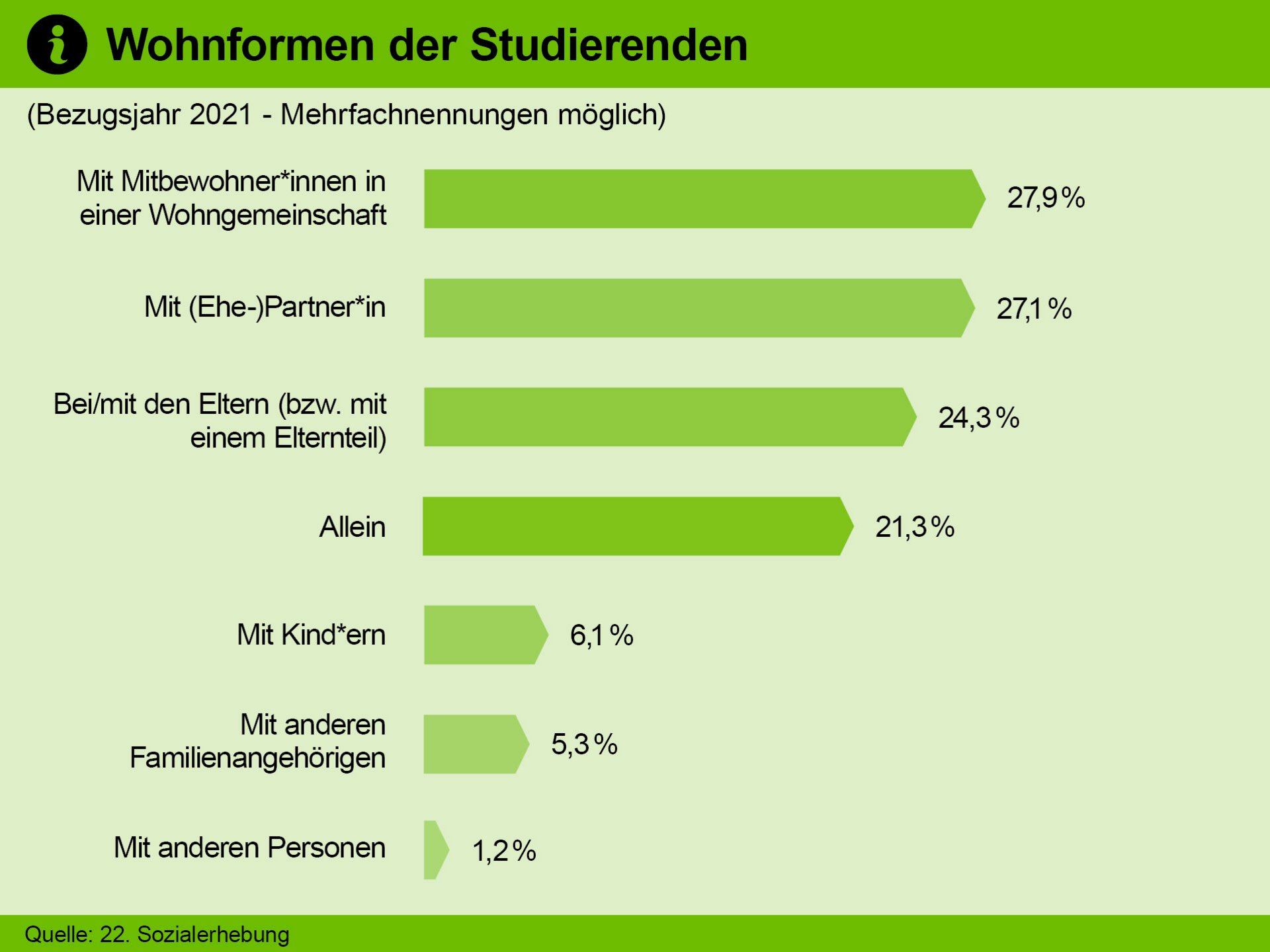According to the 22nd Social Survey of the Deutsches Studierendenwerk, most students nationwide live in rented accommodation (59%), the second largest group lives in a condominium or owned by their parents (21%), followed by students living in student accommodation (17.5%) or subletting (3%).
Depending on the size, facilities and location of the accommodation, as well as the university location, it is more difficult or easier to find suitable accommodation. Rental costs also vary considerably in some cases. It is therefore important to start looking for accommodation well in advance of the start of your studies.


